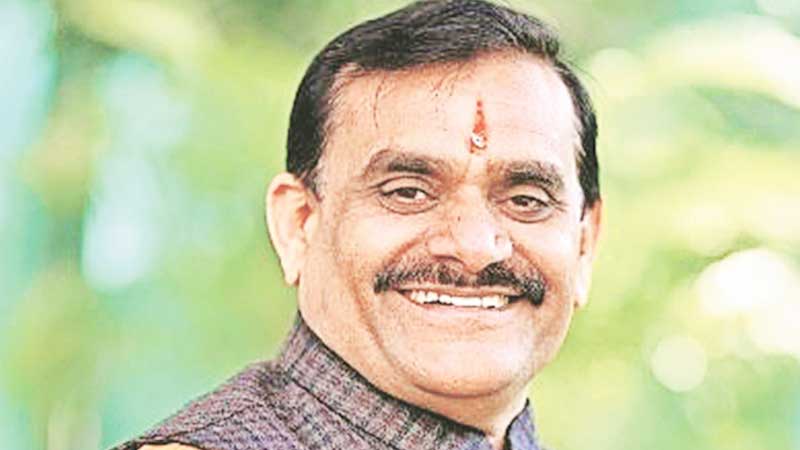Under the visionary leadership of the Hon’ble Prime Minister Shri Narendra Modi, India has already set the wheels in motion to achieve a robust and self-reliant economy, powered by a highly-skilled workforce.
Vishnu Dutt Sharma
Today, India has entered the Amrit Kaal, as the world’s the biggest democracy. It is the ideal moment to take steps towards achieving our aspirations of becoming a global superpower. Under the visionary leadership of the Hon’ble Prime Minister Shri Narendra Modi, India has already set the wheels in motion to achieve a robust and self-reliant economy, powered by a highly-skilled workforce.
Today, India is one of the fastest-growing economies in the world, and this is just the beginning! The Economic Survey of India 2023 estimates that India has over 26 crore students in schools . In the coming 25 years, these students will become the largest global workforce and play a crucial role in fulfilling the aspirations of India@100.
The formulation of a New Education Policy (NEP), which was tailored to meet the requirements of the contemporary world was even on the agenda of the Bharatiya Janata Party’s 2014 General Election manifesto. To create an education system, to empower our students with the right skills for the 21st century, and, after years of extensive consultation with lakhs of stakeholders across the sector, the NEP 2020 was launched on July 29th 2020, becoming India’s third National Education Policy, launched after a period of 34 years.
What makes the NEP 2020 transformative?
As a policy, what sets the NEP 2020 apart from its predecessors is an emphasis on
In the words of Hon’ble Prime Minister Shri Narendra Modi Ji , it is the highest priority of the policy that “children must ‘learn to read’ by Grade 3 so that they can ‘read to learn’ after”
two facets of school education: improving the quality of education and changing the way children learn in classrooms. It also comprehensively talks about the capacity building of teachers, who are directly responsible for teaching our children, after all, Quality Education cannot be imparted without quality teachers. The education policies released by the Congress-led Governments of the past primarily focused on the accessibility of schools for all children and getting them to school, but the NEP 2020’s interventions are centered on improving the quality of education throughout all stages of a child’s academic journey – from the foundational stage to the end of their school, to making them employable, well-rounded citizens.
In the words of Hon’ble Prime Minister Shri Narendra Modi Ji , it is the highest priority of the policy that “children must ‘learn to read’ by Grade 3 so that they can ‘read to learn’ after”. During Shikshak Parv 2022, the Hon’ble President of India Smt. Droupadi Murmu reiterated the Government’s political will and commitment to providing the highest quality of education, stating, “At present, many students in the primary school stage face problems in achieving foundational literacy and numeracy (FLN) skills. That is why the foremost priority is placed towards attaining these by 2025”. The launch of the NIPUN Bharat Mission in 2021 to provide FLN skills to all children is a ‘paradigm shift’ in the way teaching and learning are done in the classroom, with a newfound focus on developing the essential skills of children instead of rote learning and memorization.
The introduction of a home language/ mother tongue for teaching subjects such as science, math, etc. is another critical transformation in the lives of our children. It will help them relate to their own cultures, perspectives, and history, lending a sense of belonging and pride to their local communities. Culture and values are fundamental to the dynamic NEP 2020, however, there is no doubt that it has been developed as a dynamic, contemporary policy.
As our children move across their academic journey, the NEP 2020 is aligned towards making India a ‘hub’ of entrepreneurship and innovation. Today, India has the 2nd largest start-up ecosystem in the world, and through policy measures such as ‘Start-Up India’, ‘Kaushal Vikas Yojana’, and ‘Atal Innovation Mission’ within the NEP 2020 our government has supported the upskilling of an exceptionally large talent pool. Prime Minister Shri Narendra Modi rightly said, our future generations should be the world’s leading ‘job creators’. In 2021-22, Indian start-ups raised a record 35 billion dollars, and in 2022-23 followed with 24 billion dollars of funding .
through policy measures such as ‘Start-Up India’, ‘Kaushal Vikas Yojana’, and ‘Atal Innovation Mission’ within the NEP 2020 our government has supported the upskilling of an exceptionally large talent pool
This is a testament to the Indian youth and their appetite for creation and innovation, and a sign of things to come. They serve as a shining example of the spirit of self-reliance which India’s youngsters possess, and a zeal, drive, and hunger to become the best in the world.
The NEP 2020 is truly a groundbreaking and visionary policy launched by the Modi Government, which is empowering the world’s largest population of youth to harness their abilities. Furthermore, the vision and ambition for the education sector of India have been augmented by political will and execution, e.g., over 1.12 Lakh crore was allocated for the Education Sector in Union Budget 2023-24 , with the goal of making a ‘meticulous’ blueprint to transform India into a technology-driven and knowledge-based economy @100. As this groundbreaking policy completes the three-year milestone, it will no doubt prove to be a game-changer in India’s development story.
(The writer is BJP State President, Madhya Pradesh)


